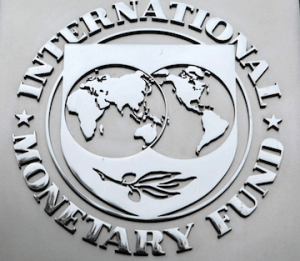[ad_1]

The Fund also observed that removing trade and non-trade tariff bottlenecks will lead to an increase in the real Gross Domestic Product (GDP) per capita of the median African country of more than 10 per cent.
“This result resonates with findings in the literature that trade reforms could
help reduce extreme poverty by an additional 30–50 million people across the continent,” the IMF observed in its Trade Integration in Africa paper.
The paper was launched in Kenya on Friday on the theme: “Unleashing the Continent’s Potential in a Changing World”.
Intra Africa trade is about 16 per cent at present.
It noted that: “Greater trade integration can help the continent take advantage of the opportunities provided by technological change and demographic trends and enhance its resilience to shocks such as climate change and geopolitical fragmentation.”
Speaking at launch and the discussion of the outcome of the research paper, Madam Kristalina Georgieva, Managing Director, IMF said: “If the African Continental Free Trade Area agreement is implemented, trade barriers removed, non-trade barriers removed, and logistics and transportation is improved upon on the continent, intra continental trade can grow by 53 per cent. Trade outside the continent can grow by 15 per cent, and this translates into tremendous benefits in terms of increase in income – 10 per cent increase in real income.”
She, therefore, urged African governments to work collaboratively with all trade and development stakeholders and financial institutions to bring down trade barriers from six per cent to one per cent.
She said that: “Even more important is the removal of non-trade barriers” and urged that Africa used trade as an engine for integration in the global supply chains and make regional supply chains vibrant, and diversify its economy.
Madam Georgieva said that when African countries traded amongst themselves, the more, they would deepen specialisation, which was a boost to productivity and diversification.
On her part, Dr Ngozi Okonjo-Iweala, Director-General, World Trade Organisation (WTO), said that recovering from the recent global economic challenges and chain supply vulnerabilities required strengthening of global trade.
“At this particular time, making the African Continental Free Trade Area agreement work is important so that we can strengthen our regional economic activity with each other,” she said.
She noted that the cost of the continent trading with the outsider cost the equivalent to a tariff of 350 per cent, which was one and half times larger than what you would find in developed countries, while intra-trade was equivalent to a 435 per cent tariff.
The WTO Director-General urged that the cost of trade was reduced to actualise the good implementation of the continental free trade area.
“At the WTO, we’re supporting it [AfCFTA implementation]; we’ve spent about €4 million in the past three years to help different countries build capacity to implement the protocols,” Dr Okonjo-Iweala said.
The AfCFTA trade pact is one of the flagship projects of the African Union (AU) Agenda 2063, with the goal of significantly boosting intra-Africa trade, value-added production and trade across all sectors of Africa’s economy.
Currently, 55 African countries have signed on to the free trade pact, out of which, 46 of them have ratified the agreement.
It is expected to be the world’s largest free
trade area by population (1.3 billion) and with a combined GDP of $3 trillion.
To make this a reality reduce poverty and improve the living conditions of the African population and make the continent prosperous, the report recommends that Africa invests in physical and human capital, and have a robust macroeconomic and business environment conducive to private sector-led growth.
The report also calls for a modernised social safety net that support the most vulnerable during the transition to a higher growth trajectory, and enhance vocational training and job search assistance during the transition.
It notes that improvements in the trade environment would boost Africa’s trade with the rest of the world, making exports from Africa to the rest of the world would grow by 29 per cent, and imports from the rest of the world by seven per cent.
“While trade integration would eventually lift the income levels of all countries in the continent, it is important to be mindful that the pace of progress may differ across countries and the impacts on households and workers may vary,” the report underscores.
Source: GNA
[ad_2]
Source link
